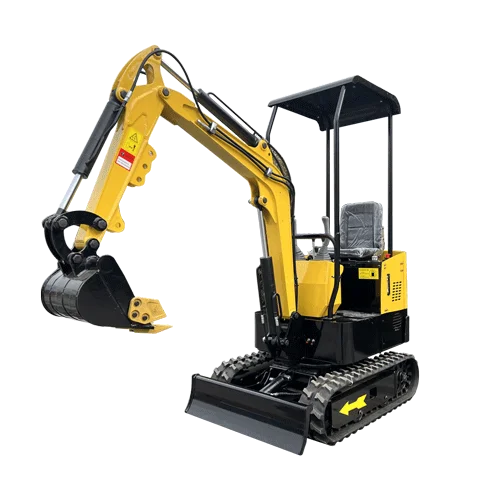Welcome to My Blog!
Before we dive into the content, I’d love for you to join me on my social media platforms where I share more insights, engage with the community, and post updates. Here’s how you can connect with me:
Facebook:https://www.facebook.com/profile.php?id=100087112105480
LinkedIn:https://www.linkedin.com/showcase/99327366/admin/dashboard/
Now, let’s get started on our journey together. I hope you find the content here insightful, engaging, and valuable.
Table of Contents
Introduction

When it comes to heavy-duty machinery like excavators, choosing the best model can be overwhelming due to the variety of options available in the market. A quality excavator can enhance productivity, reduce maintenance costs, and provide exceptional performance, while a poor choice can lead to constant repairs and operational inefficiencies. The “best” excavator for your needs will depend on several factors, including the type of work you’re performing, the terrain you’ll be working on, and your budget.
This guide will help you focus on the key features to look for when selecting the best excavators. Whether you need a mini excavator for a tight space or a large machine for digging foundations, these features will guide you to the most suitable model for your needs.
Power and Performance
One of the first and most important features to consider when choosing the best excavators is power. The engine power determines how efficiently the excavator can handle various tasks such as digging, lifting, and moving materials. Excavators with higher horsepower can tackle more challenging jobs and work faster, but they also come with a higher operating cost.
When selecting an excavator, you should assess the type of projects you will be working on. For smaller tasks such as landscaping or digging shallow trenches, a smaller engine with moderate horsepower may suffice. However, for large-scale construction, roadwork, or mining projects, a high-powered excavator with substantial horsepower will be necessary.
Hydraulic System and Attachments
The hydraulic system plays a crucial role in the operation of excavators, as it controls the boom, arm, and bucket, which are responsible for the machine’s digging and lifting capabilities. A well-designed hydraulic system ensures smoother operation and greater efficiency. For example, an excavator with advanced hydraulic systems allows for finer control of movements, which is essential for precision work.
Additionally, the ability to customize your excavator with various attachments like buckets, hammers, or augers can significantly enhance its versatility. The best excavators allow you to easily switch out attachments depending on your project needs, making the machine more adaptable.
Operator Comfort and Cab Design
The operator’s comfort and the overall design of the cab are crucial factors when selecting the best excavators. Excavators are often used for long hours, so an ergonomic and comfortable cab can reduce operator fatigue and improve productivity. Features to consider include:
- Visibility: A well-designed cab should offer excellent visibility, especially when working in tight spaces.
- Climate Control: Good ventilation and air conditioning in the cab make the work environment more comfortable, especially in extreme weather conditions.
- Seat Design: Adjustable seats with good lumbar support are essential for long hours of operation.
A cab that provides good comfort and visibility can contribute significantly to better performance and reduced chances of accidents.
Fuel Efficiency and Environmental Impact
Fuel efficiency is an important consideration when choosing the best excavators. Excavators can consume large amounts of fuel, and fuel costs are a significant part of the overall operating expenses. Therefore, opting for an excavator with a fuel-efficient engine can reduce operational costs and improve the machine’s overall cost-effectiveness.
Additionally, as environmental regulations continue to tighten, it is essential to consider the environmental impact of your excavator. The best excavators come equipped with low-emission engines that adhere to global standards, helping you reduce your carbon footprint while maintaining high performance.
Size and Mobility
The size of an excavator is another crucial factor that affects its performance and usability. Smaller, compact excavators are ideal for confined spaces or jobs that require greater maneuverability. On the other hand, larger excavators are better suited for heavy-duty jobs that require greater reach and lifting capacity.
Before purchasing, assess the space where you’ll be working. If you’re operating in urban or tight construction areas, a small to mid-sized excavator may be more appropriate. For larger open sites, consider a bigger model that can handle heavier loads and perform more extensive digging tasks.
Table: Comparison of Excavator Sizes and Their Applications

| Excavator Size | Ideal For | Key Features |
|---|---|---|
| Mini Excavators | Small to medium jobs, tight spaces | Lightweight, compact, versatile |
| Small Excavators | Landscaping, small construction | Maneuverable, medium digging power |
| Medium Excavators | General construction, digging, demolition | Stronger hydraulic systems, moderate size |
| Large Excavators | Heavy-duty construction, mining | High power, large digging capacity |
Maintenance and Durability
Durability and ease of maintenance are essential for the longevity of an excavator. The best excavators are built with high-quality materials that can withstand harsh working conditions. Regular maintenance is also important for ensuring that your excavator operates at its peak performance for years.
Look for excavators that have easy access to essential parts for maintenance and repair. Models with self-diagnostic systems or those that alert operators to potential issues can reduce downtime and costly repairs.
Safety Features
Safety should always be a top priority when operating heavy machinery like excavators. The best excavators come with a range of safety features to protect both the operator and other workers on the job site. Some key safety features to look for include:
- Rollover Protection: A robust frame or canopy to protect the operator in the event of a rollover.
- Advanced Control Systems: Automatic systems that prevent overloading and ensure safe operation.
- Emergency Stop Mechanisms: Accessible emergency shutoff switches to halt operation in case of danger.
Conclusion: How to Choose the Best Excavators for Your Needs

Selecting the best excavators depends on a variety of factors, including the size of the machine, its hydraulic system, fuel efficiency, and operator comfort. By focusing on these seven key features, you can make a well-informed decision that suits your project requirements.
Always consider your specific operational needs, budget, and long-term goals when selecting an excavator. With the right machine, you can improve productivity, reduce costs, and ensure safety on your job site.
FAQ
Q: What is the best excavator for small construction jobs?
A: For small construction jobs, mini or small excavators are ideal. They are compact, maneuverable, and provide enough power for tasks like trenching and landscaping. Models such as the Kubota KX033 and Cat 305E are good options.
Q: How do I know if I need a mini or full-sized excavator?
A: If you’re working in confined spaces or need a machine for light tasks, a mini excavator is best. However, for larger projects like heavy-duty digging or demolition, a full-sized excavator will be necessary.
Q: Are there fuel-efficient excavators available?
A: Yes, many modern excavators are designed to be fuel-efficient, with low-emission engines that comply with environmental standards. Look for models with eco-mode settings to further reduce fuel consumption.
Q: How often should I perform maintenance on my excavator?
A: Regular maintenance is key to keeping your excavator in good working condition. Perform daily checks on fluids and parts, and schedule more in-depth maintenance every 250-500 hours of operation.
Q: Can I use an excavator for digging in rocky terrain?
A: Yes, some excavators are specifically designed for tough terrains, such as rocky environments. Look for models with powerful hydraulic systems and reinforced frames that can handle such conditions.
